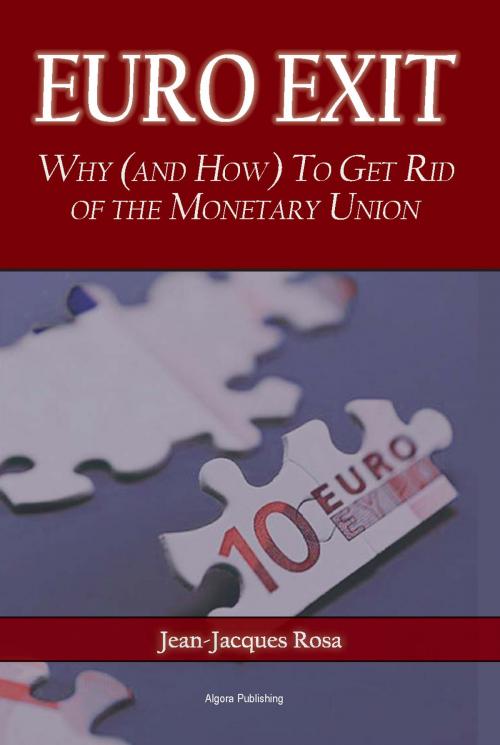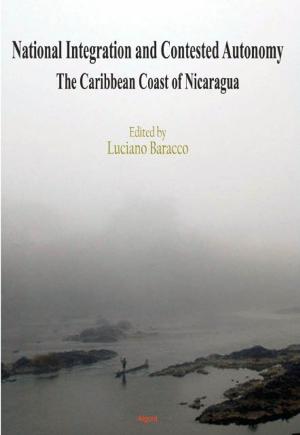Euro Exit
Why (and How) To Get Rid of the Monetary Union
Nonfiction, Social & Cultural Studies, Political Science, International, International Relations| Author: | Jean-Jacques Rosa | ISBN: | 9780875869148 |
| Publisher: | Algora Publishing | Publication: | December 15, 2009 |
| Imprint: | Algora Publishing | Language: | English |
| Author: | Jean-Jacques Rosa |
| ISBN: | 9780875869148 |
| Publisher: | Algora Publishing |
| Publication: | December 15, 2009 |
| Imprint: | Algora Publishing |
| Language: | English |
The author set out the problems inherent in the idea of the Euro before it was even created. His book Euro Error (trans. Algora 1999) was prescient. The dire forecasts have been amply fulfilled. More than ten years after the error, the puzzle of why most elites in continental Europe went so completely wrong (from a general welfare point of view), are explained for the first time in the literature.
How the euro exacerbated the Great Recession in Europe is also precisely demonstrated, and the sophism of those who claim that no exit is ever possible is clearly exposed and criticized. The best way out of the single currency is for the first time delineated.
The writing style is clear and the reading easy, nontechnical, but strictly based on rigorous economic analysis. Few books in English treat of the topic in a nontechnical way, whereas there is a flurry of newspapers articles and blog comments on the subject. The books comparative advantage is in a simple and synthetic explanation of the initial mistake, but it adds an original analysis of the fundamental reasons why it was made in the first place. It is also original in that it criticizes the current dogma of the impossibility of euro exit (or break up) without a major financial apocalypse, and explains how to proceed to return the European economies to a growth path and independent monetary policies, while avoiding at the same time the trap of a catastrophic financial meltdown.
The author set out the problems inherent in the idea of the Euro before it was even created. His book Euro Error (trans. Algora 1999) was prescient. The dire forecasts have been amply fulfilled. More than ten years after the error, the puzzle of why most elites in continental Europe went so completely wrong (from a general welfare point of view), are explained for the first time in the literature.
How the euro exacerbated the Great Recession in Europe is also precisely demonstrated, and the sophism of those who claim that no exit is ever possible is clearly exposed and criticized. The best way out of the single currency is for the first time delineated.
The writing style is clear and the reading easy, nontechnical, but strictly based on rigorous economic analysis. Few books in English treat of the topic in a nontechnical way, whereas there is a flurry of newspapers articles and blog comments on the subject. The books comparative advantage is in a simple and synthetic explanation of the initial mistake, but it adds an original analysis of the fundamental reasons why it was made in the first place. It is also original in that it criticizes the current dogma of the impossibility of euro exit (or break up) without a major financial apocalypse, and explains how to proceed to return the European economies to a growth path and independent monetary policies, while avoiding at the same time the trap of a catastrophic financial meltdown.















